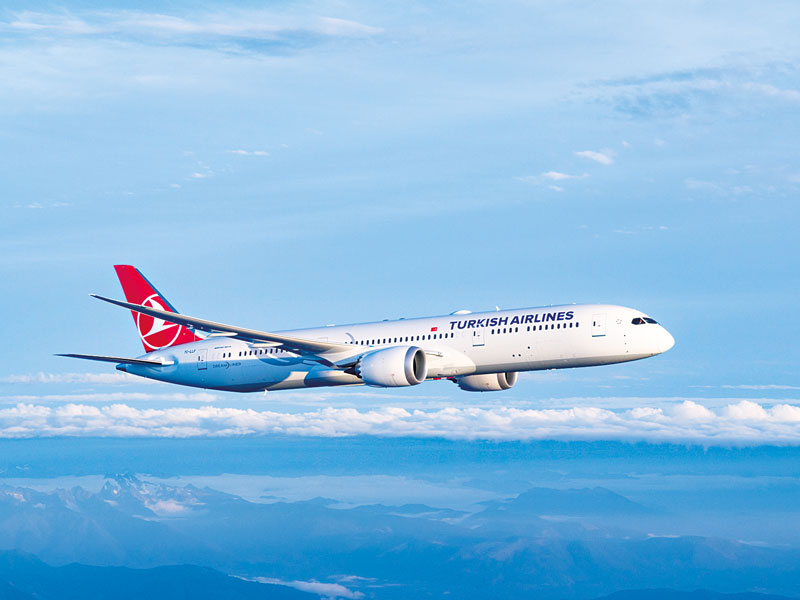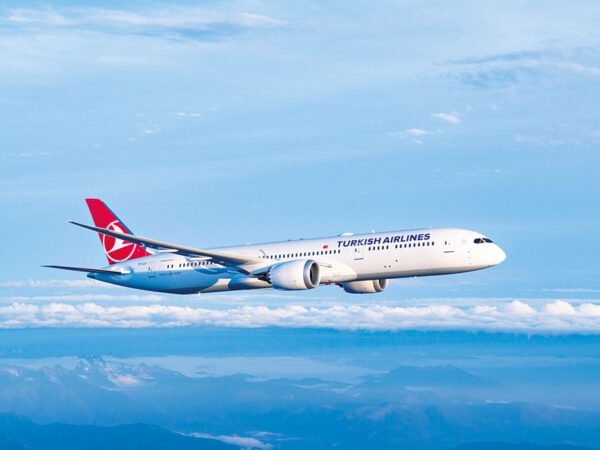
 
Author: Ahmet Bolat, Chairman of the Board, Turkish Airlines
‘Sustainable aviation’ is increasingly in the spotlight, and for good reason. But working towards this important goal is far from simple. At Turkish Airlines, we see it as a comprehensive and realistic approach to minimising our environmental impact – but there is no denying that carbon offsetting alone is insufficient. The issue has to be tackled from multiple angles. In our case the pillars are: the integrating of fuel efficiency, operational improvements, fleet renewal and the adoption of sustainable aviation fuels (SAF). In short, we strive to integrate sustainability into our operations and engage passengers through user-friendly platforms such as CO₂mission.
Carbon footprint-reducing measures
As mentioned above, our sustainability approach is multi-pronged and we have worked hard towards it for many years, long before ‘sustainability’ was the buzzword it is today. Since 2008, Turkish Airlines has implemented over 100 operational optimisation projects aimed at increasing fuel efficiency. In 2024 alone, these projects resulted in approximately 70,000 tons of fuel savings and prevented more than 220,000 tons of CO₂ emissions. Our fuel saving committee and advanced fuel management information systems help ensure continuous improvements. We have made significant progress but our primary focus remains the same, namely to keep fine-tuning operational efficiency and promoting the use of SAF.
Elsewhere, we have initiated projects such as ‘statistical contingency fuel’ to minimise excess fuel carriage on flights using data analytics. Additionally, we have phased out single-use plastic cups, introduced FSC-certified paper products and adopted lighter cabin equipment to reduce weight and fuel consumption. Collectively, these initiatives enhance both operational efficiency and environmental sustainability.
Inspiring green thinking
It is imperative to motivate passengers on sustainability and there are a number of ways to go about this. To engage our passengers, we have developed a dedicated hub – the CO₂mission platform. Though this multifunctional platform does not eliminate carbon emissions directly, it provides passengers with a transparent and verified system, encouraging them to contribute to global climate action. In order to inspire passenger participation, we have put a lot of effort into creating a platform with a user-friendly interface, allowing them to calculate and offset their carbon footprint with ease. Supported projects – all of which are internationally recognised gold standard and VCS-certified – include renewable energy generation, ecosystem restoration and community-based initiatives, enabling passengers to actively contribute to a more eco-friendly world.

To offer a more detailed rundown of these initiatives, the ‘renewable energy’ projects revolve around wind, solar and hydroelectric power to reduce fossil fuel consumption, while the ‘ecosystem restoration’ category helps to preserve natural ecosystems, increasing carbon sequestration capacity for long-term impact. The third in the family of initiatives – ‘community care’ – provides fuel-efficient stoves in developing regions to reduce carbon emissions and improve local communities’ quality of life.
We have noticed that projects that offer social benefits, such as the community-based cookstove initiatives, have been particularly popular, achieving increased overall engagement. It is evident that passengers appreciate seeing tangible impacts from their contributions. As for the physical in-flight experience, we strive to create awareness through sustainable practices such as digital menus and the use of biodegradable products. These initiatives aim to motivate passengers to become more environmentally conscious – whether they happen to be on a plane or elsewhere.
Future sustainability efforts
Without a doubt, the limited availability and high production costs of SAF pose the biggest challenge for our industry. In 2024, SAF accounted for only about 0.3 percent of global jet fuel usage. Scaling SAF production and making it economically viable requires extensive collaboration across the aviation sector, significant investments and supportive policies.
As for our own ongoing efforts, we are fully invested in our mission to reduce our environmental impact and will accelerate our sustainability initiatives with the goal of becoming a carbon neutral airline by 2050. To go about this, we will make full use of the multifaceted strategy we have developed over the years – and as ever continue to improve it. The areas of focus involve the increased use of sustainable aviation fuels, continued fleet modernisation and the expansion of data-driven fuel optimisation projects. Additionally, we have published our comprehensive ‘climate transition plan.’ Complacency has no place in the fight for the environment, and Turkish Airlines is determined to continue to invest in new technologies to further reduce our environmental footprint.


